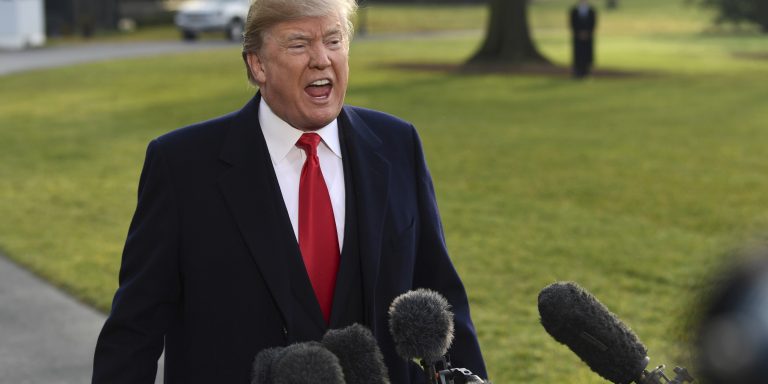INTELBRIEF
December 4, 2017
TSC IntelBrief: National Insecurity

• On December 1, former U.S. National Security Advisor and Defense Intelligence Agency chief Michael Flynn pleaded guilty to lying to the FBI, during the ongoing investigation into Russian interference in the 2016 election.
• Flynn’s plea deal hinges on his complete cooperation with Special Counsel Robert Mueller; the White House responded by calling Flynn a ‘former Obama administration official,’ without mentioning that Flynn had been fired from that position.
• The Special Counsel’s investigation may well reveal more criminality and impropriety among Trump campaign figures, as the scale of their contacts with Russian officials during the 2016 election becomes more clear.
• President Trump’s reaction to the news—publicly and hyperbolically demeaning the FBI and Department of Justice—threatens to damage national security by weakening respect for national institutions and rule-of-law in the United States.
The ongoing investigation by Special Counsel Robert Mueller into alleged Trump campaign collusion with Russian meddling in the 2016 Presidential election took what appears to be a significant turn on December 1. Former National Security Advisor Michael Flynn, one of President Donald Trump’s earliest, most vocal and most trusted supporters, appeared in court to plead guilty to one felony count of lying to the Federal Bureau of Investigations (FBI) over his communications with then-Russian ambassador to the U.S., Sergey Kislyak. The plea deal and sentencing recommendations are contingent on Flynn cooperating fully with the Special Counsel as the investigation proceeds.
Flynn had resigned from his White House post on February 13, 2017, when it became publicly known that he had lied to the FBI and Vice President Mike Pence, about discussing U.S. sanctions on Russia during a phone call with Ambassador Kislyak. That Flynn was caught as a result of a recorded call is surprising; as a former head of the Defense Intelligence Agency, he should have known all communications with known Russian officials would be monitored. Lying also put Flynn in serious jeopardy for blackmail by Moscow, given that Russian officials knew the details of the conversation did not match the publicly stated record given by the White House. Flynn lasted less than a month as National Security Advisor—often the security official closest to the President and one of the most important appointments a President can make. Meanwhile, the damage to the U.S. from Russian involvement in the election, amidst continuing allegations the Trump campaign sought aid from Moscow, is more manifest every day.
While President Trump has frequently derided the Special Counsel’s investigation as a ‘witch hunt’ and ‘fake news,’ the U.S. intelligence community continues to assert that Russia conducted a broad disinformation effort to heighten political divisions and damage the Hillary Clinton campaign in the 2016 election. Special Counsel Mueller’s investigators are clearly exploring whether Trump campaign officials and supporters deliberately sought out Russian disinformation to use as a political weapon. Flynn’s plea deal—one felony count when the public record indicates a far greater exposure to serious felony charges—suggest investigators are pursuing more suspects and that Flynn’s acts were not made in isolation.
President Trump’s reaction to the Flynn plea agreement was to take to Twitter, where he denounced the nation’s premier law enforcement agency, the FBI, as having a reputation ‘in tatters—worst in history.’ The President also used Twittter to call former FBI Director James Comey a liar, not noting that his decision to fire Director Comey had led directly to the Special Counsel’s appointment. President Trump’s Twitter feed also featured what at first appeared to be a tacit admission of possible obstruction of justice, though Mr. Trump’s personal attorney John Dowd subsequently told reporters that he, Dowd, personally drafted the tweet, which he called ‘his mistake.’ According to the tweet, posted under the President’s name, ‘I had to fire General Flynn because he lied to the Vice President and the FBI.’ Previously, the President stated he hadn’t known about Flynn lying to the FBI, only that he had been untruthful to the Vice President. If investigators can show the President knew Flynn had lied to the FBI and then asked the FBI Director to drop the Flynn investigation, then a potential obstruction case becomes stronger.
While many will view the Flynn plea deal through partisan or political lenses, national security is at the heart of this issue, not politics. Improper behavior by the President’s most trusted security advisor is damaging enough by itself. A larger national security issue can be seen in the increasing normalization of White House dismissals of fact-based legal investigations by career Justice Department investigators as ‘fake news.' The ongoing demeaning of U.S. law enforcement institutions by the President is without precedent. It also exacerbates socio-political divisions in the U.S. that will be increasingly difficult to repair.
For tailored research and analysis, please contact: info@thesoufancenter.org
.
.